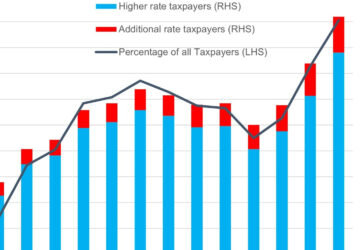Research by the Institute for Fiscal Studies provides a stark warning of how important inheritances are going to be for younger generations in terms of both lifetime income and wealth.
Wealth passed down from one generation to the next is fast becoming the most important determinant of how well off a person will become, with those born in the 1980s projected to inherit almost twice as much as those born in the 1960s. The average inheritance for those born in the 1980s will be worth 16% of their lifetime (non-inheritance) income. One in ten can expect to receive more than £500,000, and it will come as no surprise that graduates generally have wealthier parents.
Security comes from inheriting property
With a potential £1 million exemption from IHT, your inheritance may well be tax-free if you inherit the family home. Depending on your circumstances, you may then be able to live mortgage-free or enjoy rental income.
Be warned, however, that the inequalities created by inheritances could see a wealth tax imposed at some point.
Struggle for those without family funds
Without parental help, it is becoming increasingly difficult to get a first step on the property ladder. The temporary stamp duty cut should have helped, but any saving has been wiped out by a surge in property prices. Despite this, there is better news:
- A new government guarantee scheme has been launched, alongside the return of 95% mortgages. Mortgage rates are of course lower for those who can find a 10% deposit.
- The latest version of the help to buy equity loan scheme means you can borrow up to 20% (40% in London) towards the cost of a newly built home, so a smaller mortgage is then required.
- First-time buyers will again have a stamp duty advantage later in 2021 once the temporary reliefs come to an end.
Guidance on help to buy, including the equity loan scheme, is available on the government website.
Photo by Elena Mozhvilo on Unsplash







